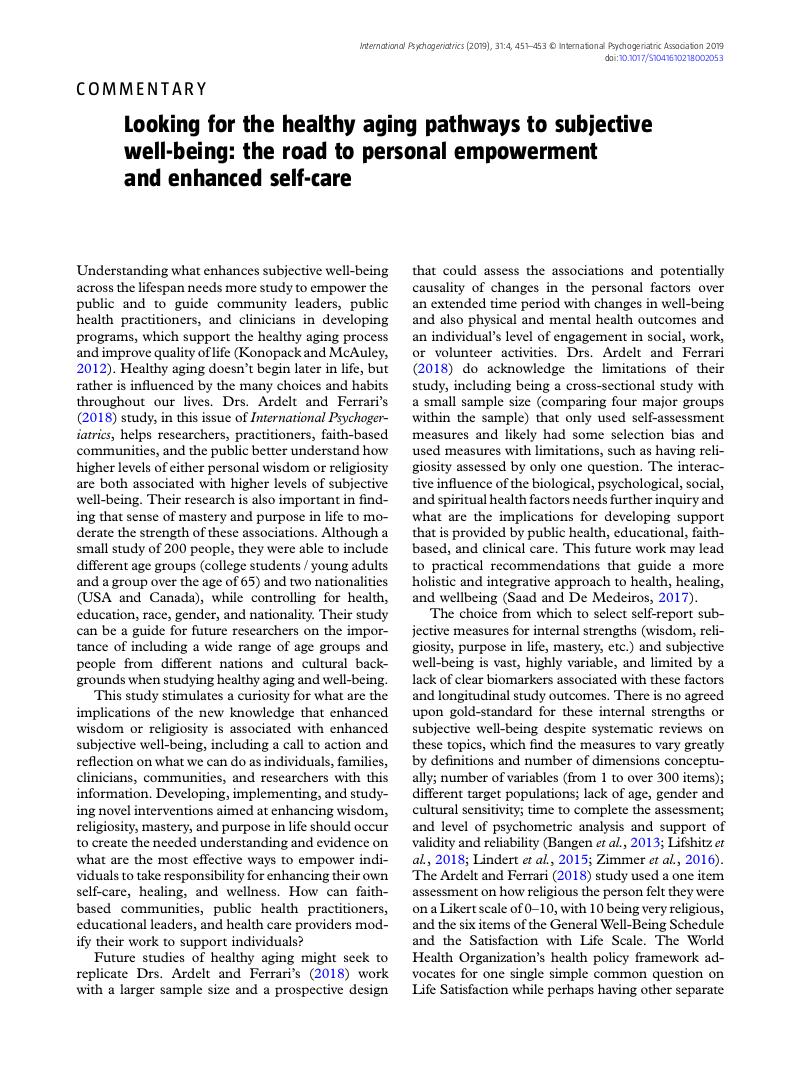Crossref Citations
This article has been cited by the following publications. This list is generated based on data provided by Crossref.
Wu, Wei
Shang, Ying
Calderón-Larrañaga, Amaia
Rizzuto, Debora
Saadeh, Marguerita
Dove, Abigail
Pan, Kuan-Yu
and
Xu, Weili
2021.
Association of life satisfaction with disability-free survival: role of chronic diseases and healthy lifestyle.
Age and Ageing,
Vol. 50,
Issue. 5,
p.
1657.
Yin, Haojie
Qiu, Xueying
Zhu, Yan
and
Yang, Qing
2023.
Adverse childhood experiences affect the health of middle-aged and older people in China: The multiple mediating roles of sleep duration and life satisfaction.
Frontiers in Psychiatry,
Vol. 14,
Issue. ,





